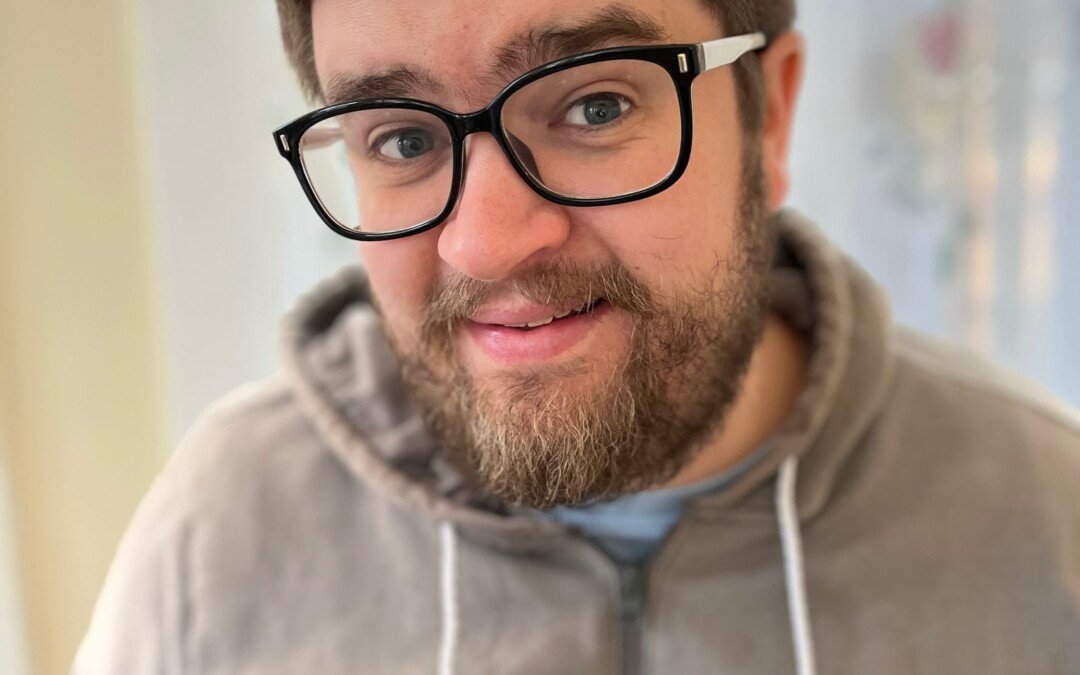Q&A with Mitchell Henderson
Q: When did you move to New Hampshire, and what brought you here?
Mitchell: My wife and I moved to New Hampshire in the fall of 2022. We had been living in Oregon, where I worked in churches and nonprofit ministry. After having our son, we felt it was time for a change and wanted to be closer to my wife’s family—her father is a priest in Conway. She had a remote job, so we made the move, and I took some time off to stay home with our son for about six months.
Q: How did you get connected to White Horse Recovery?
Mitchell: While looking for jobs here, I asked my father-in-law to ask around. I was getting my master’s degree in ministry and leadership and was looking for a way to serve the community—specifically in faith-based or human services. The biggest needs I saw were in elderly care, mental health, and substance use. My father-in-law introduced me to Mitch, the founder of White Horse, who’s also on our board. At the time, there was only an entry-level recovery coach position open, but after meeting Mitch, Eric, and some of the team, I felt drawn to the mission and decided to join.
Q: What strengths do you bring to your role at White Horse?
Mitchell: My background in Christian ministry and nonprofit work helps me bring a compassionate and service-oriented approach. I’m not in recovery myself, but I see that as an opportunity to offer a different perspective. Lived experience is a superpower—I don’t have that, but I do bring the ability to sit with people, listen, and care deeply. From a Christian perspective, I believe we’re all broken people in need of hope and strength.
Q: What has your journey looked like within White Horse?
Mitchell: After starting as a recovery coach, I was quickly given the opportunity to manage our North Conway center. That role allowed me to use my leadership and communication skills, and eventually, I became the RCO Director overseeing all four centers. One of my goals has been to identify and amplify the unique strengths each team member brings—whether it’s lived experience, compassion, or personal connection to addiction. Peer support is such a powerful and unique model.
Q: What originally inspired your shift from engineering to ministry and service?
Mitchell: I actually went to college for mechanical engineering because it made logical sense. But during my junior year, I got involved with a campus ministry and had a real conviction that God was calling me to help people. I finished the degree but accepted a church internship knowing I wasn’t going to pursue engineering. From there, it’s been a journey of discernment that led me here to New Hampshire—and to White Horse, which I see as the place I’m meant to serve.
Q: What are your goals as RCO Director?
Mitchell: The practical side is improving systems, data, and staffing across all centers. Metaphorically, I think of it as seasons—we’ve been in a pruning season, and now we’re in a planting and preparing one. Hopefully, in a couple years, we’ll be in a growing and harvesting season. Ultimately, I want us to be a strong community presence and a hub for those affected by substance use and mental health issues.
Q: What do you want people to understand about your role as someone not in recovery?
Mitchell: I try to be upfront—I’m one step removed. I have friends and family affected by addiction, but I don’t claim that as my direct experience. Still, I believe it’s an issue that touches every community. Even if you’re not personally impacted, there are ways to help—by learning, listening, and responding with compassion instead of judgment. It’s easy to distance ourselves from uncomfortable realities, but healing comes when we embrace them with empathy and action.

